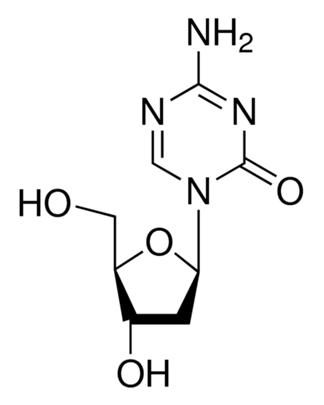
根据一项新的研究,对病人的治疗方案进行简单的调整可能改善骨髓增生异常综合征(myeloid dysplastic syndrome, MDS)和急性骨髓性白血病(acute myeloid leukemia, AML)标准表观遗传疗法的疗效。
具体而言,来自美国南加州大学、温安德尔研究所(Van Andel Research Institute)和丹麦哥本哈根大学国王医院(Rigshospitalet)等机构的研究人员在实验室研究中证实在癌细胞系中,往一种被称作地西他滨(decitabine)的表观遗传抗癌药物中添加一种维生素C会增加这种药物阻止癌细胞生长和触发癌细胞自我摧毁的能力。相关研究结果于2016年8月24日在线发表在PNAS期刊上,论文标题为“Vitamin C increases viral mimicry induced by 5-aza-2′-deoxycytidine”。
在丹麦哥本哈根大学国王医院(Rigshospitalet)里,基于这项研究的一项临床预试验正在患有MDS或AML的成年病人体内开展。它将一种类似的被称作阿扎胞苷(azacitidine)的药物---标准的治疗方法---与维生素C组合在一起。很多癌症病人缺乏维生素C;建议的方法就是弥补这种缺乏,但不应让病人体内的维生素C水平超标。
论文共同通信作者、温安德尔研究所首席科学家Peter Jones博士说,“如果这项临床预试验取得成功的话,那么我们计划开展一项更大规模的临床试验来研究这种策略---作为一种直接的有成本效益的方法来改善现存的AML和MDS疗法---的潜力。与此同时,我们必须要有耐心和谨慎。我们需要在未来,仅当将阿扎胞苷和维生素C或安慰剂组合在一起时开展的临床试验针对维生素C是否增加阿扎胞苷在病人体内的疗效给出真正的答案。我们必须强调我们的临床试验局限于接受一种特定治疗疗程的MDS或AML病人当中的一部分人。我们没有证据证实这种方法适用于其他的癌症或化疗药物。”
这项临床试验由哥本哈根大学国王医院血液学家Kirsten Grønbæk博士领导的。它将招募20名病人;初步的结果预计在2017年春天或夏天出炉。
Grønbæk说,“这种类型的组合疗法是大有希望的,但是还需开展更多的研究来确定它的安全性和有效性。考虑到可能存在一种简单而又优雅的方法来帮助病人抵抗MDS和AML确实是激动人心的。但是,作为一名医师,我们强烈地敦促病人等待这项临床试验的结果出炉,并且与他们的医生讨论所有饮食变化和补充剂变化。”
据估计,在美国每年有1.3万人经确诊患上MDS,大约有2万人经确诊患上AML。当前,仅仅大约一半的MDS和AML患者对单独的这种表观遗传药物作出反应。
Vitamin C increases viral mimicry induced by 5-aza-2′-deoxycytidine
Minmin Liu, Hitoshi Ohtania,1, Wanding Zhoua,1, Andreas Due Ørskovb,1, Jessica Charletc, Yang W. Zhangd, Hui Shena, Stephen B. Baylina,d, Gangning Liangc,2, Kirsten Grønbækb,2, and Peter A. Jones
doi:10.1073/pnas.1612262113
PMC:
PMID:
Vitamin C deficiency is found in patients with cancer and might complicate various therapy paradigms. Here we show how this deficiency may influence the use of DNA methyltransferase inhibitors (DNMTis) for treatment of hematological neoplasias. In vitro, when vitamin C is added at physiological levels to low doses of the DNMTi 5-aza-2′-deoxycytidine (5-aza-CdR), there is a synergistic inhibition of cancer-cell proliferation and increased apoptosis. These effects are associated with enhanced immune signals including increased expression of bidirectionally transcribed endogenous retrovirus (ERV) transcripts, increased cytosolic dsRNA, and activation of an IFN-inducing cellular response. This synergistic effect is likely the result of both passive DNA demethylation by DNMTi and active conversion of 5-methylcytosine (5mC) to 5-hydroxymethylcytosine (5hmC) by ten–eleven translocation (TET) enzymes at LTR regions of ERVs, because vitamin C acts as a cofactor for TET proteins. In addition, TET2 knockout reduces the synergy between the two compounds. Furthermore, we show that many patients with hematological neoplasia are markedly vitamin C deficient. Thus, our data suggest that correction of vitamin C deficiency in patients with hematological and other cancers may improve responses to epigenetic therapy with DNMTis.

